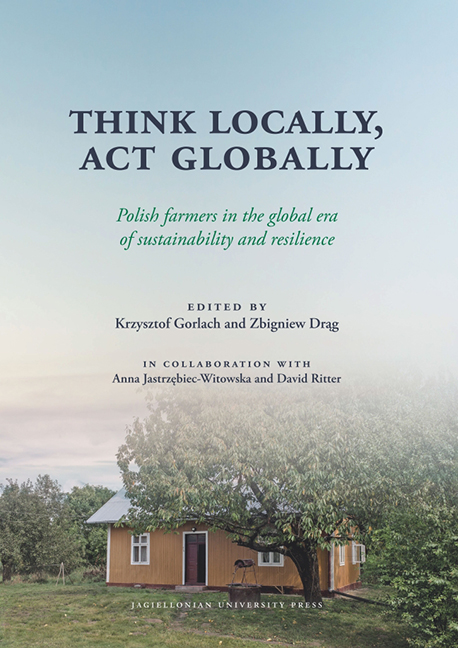Book contents
- Frontmatter
- Contents
- Family Farming: A foreword
- An Introductory Letter from the First Editor: Where the horses, cows, and even cats had their own names
- Part One Theoretical and Methodological Considerations
- Part Two Changes in the Post-Communist Transformation
- Part Three Diversification of Farmers’ Strategies
- Part Four Some Independent Studies
- Conclusion: Some Final Remarks from the First Editor
- Afterword: Renewing a Sociology of Agriculture
- Biograms
Chapter Three - From Repressive Tolerance to Oppressive Freedom: The end of Polish peasantry?
Published online by Cambridge University Press: 16 July 2022
- Frontmatter
- Contents
- Family Farming: A foreword
- An Introductory Letter from the First Editor: Where the horses, cows, and even cats had their own names
- Part One Theoretical and Methodological Considerations
- Part Two Changes in the Post-Communist Transformation
- Part Three Diversification of Farmers’ Strategies
- Part Four Some Independent Studies
- Conclusion: Some Final Remarks from the First Editor
- Afterword: Renewing a Sociology of Agriculture
- Biograms
Summary
Introduction
The following monograph aims to present various phenomena, tendencies, and processes occurring among the group of owners (main operators) of farms in Poland that participated in the 2017 research study. It has now been over 30 years since the fundamental political and economic shift that occurred in Poland (and other countries in Central Europe) in 1989–1990. There is a sociological justification for the notion that phenomena and processes of today are well-rooted in past events and developments. What is occurring today may be their immediate continuation or, in some way, their opposition. Such a perspective is very much in tune with historically-oriented sociology, with its principles of continuity and change in social life. There is no question that the historical perspective should accompany the following reflection.
There is a question of how far back one should go when applying an historical perspective to analyze contemporary matters. In other words, what period of time should be taken into consideration in order to discuss what is happening at present? However, this is not the only thing of significant importance. The decision on the role and meaning of certain moments in time that could be treated as starting points for historical background is always a challenge, as these chosen moments may be treated as crucial in terms of shaping social phenomena and processes to be analyzed in the subsequent work. Although it would be tempting to follow in the footsteps of famous historian Norman Davies (2001), who presented one of the best synthetic histories of Poland, going against chronology, in a backward order, would be too much of an imitation. He started his scholarly reflection from contemporary times and finished by recollecting the initial stages of the formation of the Polish state. The purpose of this technique was to show how particular phenomena and processes that were characteristic of certain epochs developed on the basis of what was happening prior.
From the perspective of economic, social, and cultural transformations experienced by farmers, the most important caesura of recent times was the already mentioned collapse of the Communist regime during 1989–1990. At that time, Poland went from being a statist system, a centrally planned economy, and an oppressive political system, legitimized by both communist ideology and some elements of national ethos, to a market economic system, concurrent with the privatization of state companies and the introduction of liberal democracy.
- Type
- Chapter
- Information
- Think Locally, Act GloballyPolish farmers in the global era of sustainability and resilience, pp. 153 - 224Publisher: Jagiellonian University PressPrint publication year: 2021

